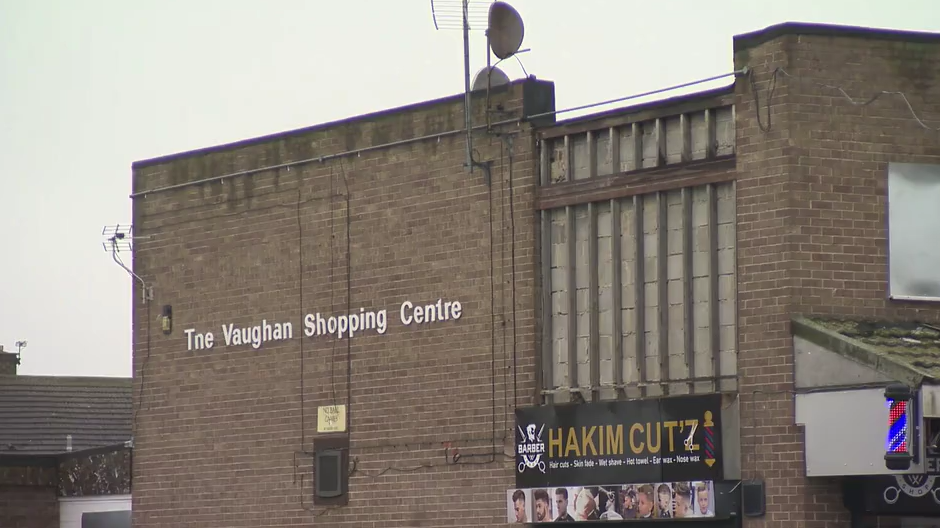'Anti-social behaviour makes me scared all the time'
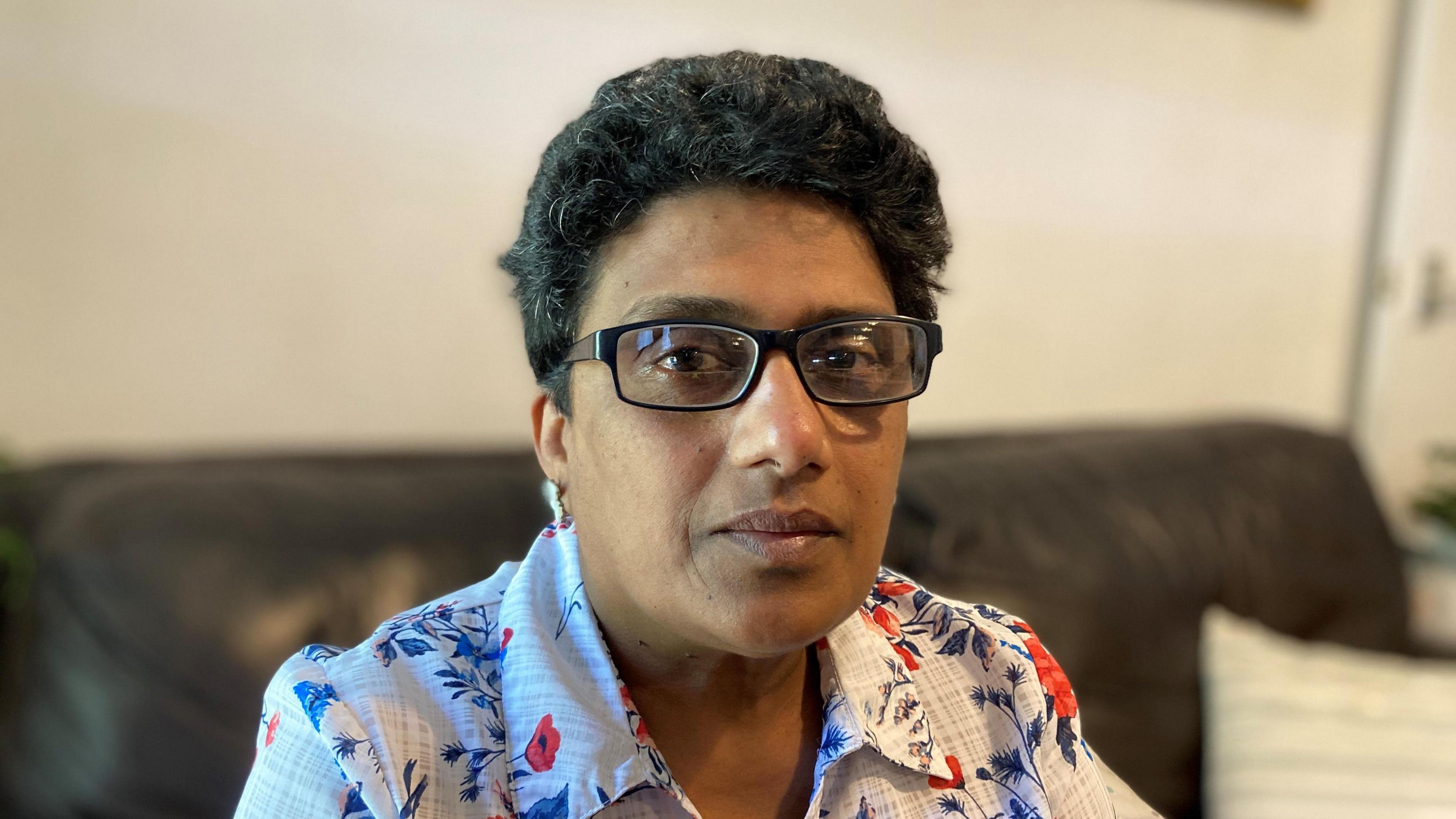
Kumudini Nicola has been plagued by anti-social behaviour and abuse for three years
- Published
A widow says she has been left "scared all the time" by a suspected racist campaign of anti-social behaviour which saw dog waste left on her doorstep.
Kumudini Nicola, who said she was targeted soon after moving into a Darlington council house three years ago, has reported the abuse to police and the council but it has not stopped.
Darlington Borough Council said it had "taken action where appropriate" and investigations were "ongoing".
It comes as a BBC investigation found that councils in north-east England received 31,473 reports of anti-social behaviour in 2023, but issued penalties in fewer than 1% of cases.
The anti-social behaviour against Ms Nicola began with low-level vandalism and thefts from her garden but became more threatening, she said.
The 58-year-old said one man shouted "bad words" about her skin colour and called her an "ugly woman".
Doorbell camera footage appeared to show someone urinating in her garden while laughing.
"They have left dog poo on my doorstep," she said.
"I can’t go out now. I am scared all the time."
'I can't sleep'
Ms Nicola is originally from Sri Lanka and has four children. She lives alone after her husband died from heart failure in 2017.
She said the three-year campaign of abuse had left her physically and mentally unwell.
"My blood pressure is really high and my hands are shaking all the time," she said.
"I’ve got mental problems now. I can’t sleep.
"Sometimes I am thinking about suicide."
Darlington Borough Council said: "We can confirm we have followed up on issues raised by the tenant and taken action where appropriate. Investigations are ongoing and we continue to work with the tenant.
"We take all reports of anti-social behaviour, racism and hate incidents very seriously. We use the whole range of powers and tools available to us as a landlord, taking appropriate, swift, and proportionate action when necessary.
"We aim to strike a balance between prevention, early intervention, support, and enforcement."
'On alert'
Paul – a name the BBC has given him to protect his identity – said he lived in a "constant world of stress".
His street in Jesmond, Newcastle, had become a "playground for students" at night, he said.
He is "on alert all the time" after "a lump of concrete the size of a baseball" was thrown through his daughter's bedroom window.
It landed on her bed along with "shards of broken glass," he said.
His daughter was not home that night.
He said his neighbours claimed they saw a group, believed to be students, throw the concrete.
"She would have ended up in A&E. Probably with life-changing injuries."
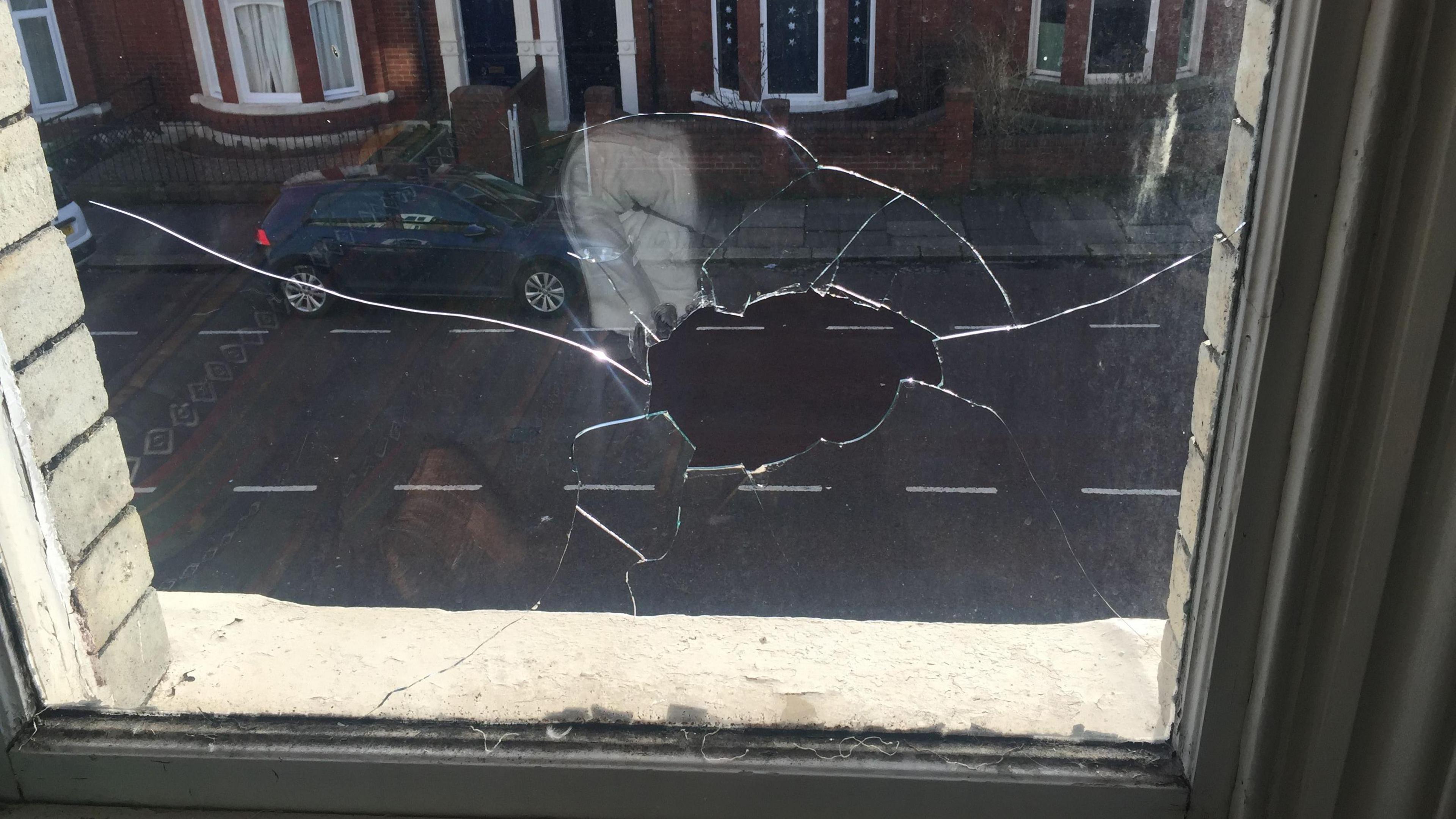
A lump of concrete was thrown through Paul's daughter's bedroom window in Jesmond
Paul reported the incident but said anti-social behaviour still plagued his life.
He said he faced issues with noise, broken glass on pavements, and students using "people’s gardens as a toilet".
"We’ve had students running across the tops of cars," he added.
Rats are also a major problem because "bags of rubbish are just left out in the back lane".
In a joint statement, Newcastle and Northumbria Universities said they "investigate all complaints received, and where appropriate, liaise with Northumbria Police and the City Council to visit students to remind them of their responsibilities".
"If anti-social behaviour continues then formal disciplinary measures may be taken in line with university policies," they added.
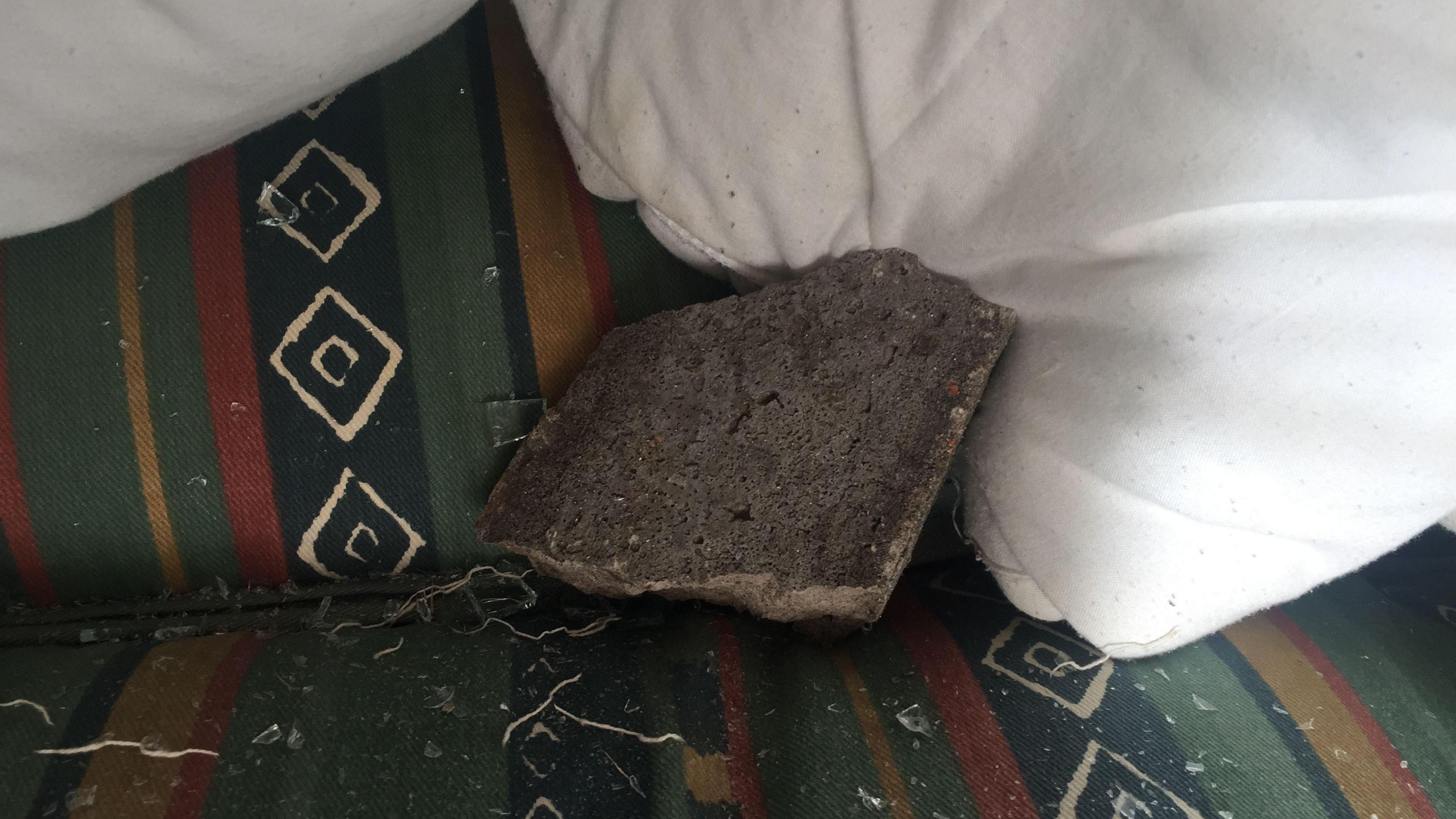
Paul said the concrete was about the size of a baseball and left broken glass all over his daughter's bed
In 2014, a new law provided councils with more powers to deal with persistent offenders.
Anti-Social Behaviour Orders (ASBOs) were replaced with Community Protection Notices (CPNs) and Civil Injunctions. They can be issued for non-violent antisocial behaviour, such as causing nuisance noise, allowing dogs to foul in public or being abusive to neighbours.
North East councils received 31,473 reports of antisocial behaviour in 2023, but just 226 CPNs and 29 Civil Injunctions were issued, according to Freedom of Information requests.
That is fewer than 1% of cases.
Paul has reported more than 50 incidents to Newcastle City Council, which he accused of being "extremely slow" to respond to anti-social behaviour.
"I don’t understand why they are so reluctant to use the powers they have," he said.
"It’s not dealing with the problem."
Newcastle City Council said: "Tackling anti-social behaviour is one of our key priorities, underpinned by the fact we are investing an extra £1.5m to tackle the issue."
It said Operation Oak – a joint initiative in Jesmond between the council, police and the city's two universities – helps "keep residents safe and tackle noise, disorder and ASB issues".
'Victims let down'
The charity ASB Help said the BBC’s findings showed legislation to tackle anti-social behaviour was "not being used to its full potential".
Charlie Kay, the organisation’s deputy CEO, said victims were "being let down by the people in a position to help them".
"We have practitioners working on the front line of ASB who do not understand or do not know the legislation 10 years on," she claimed.
Ms Kay urged councils to do more to end the suffering for victims of anti-social behaviour.
"It can push people to consider suicide and they take matters into their own hands," she said.
A Labour Home Office spokesperson said: "We have made clamping down on anti-social behaviour one of our first steps to delivering safer streets and more secure communities.
"We have committed to delivering 13,000 new neighbourhood police and community support officers and the introduction of tough new powers to tackle repeat offending."
If you have been affected by the issues raised in this article, support and information are available at the BBC Action Line.
Follow BBC North East on X (formerly Twitter), external, Facebook, external and Instagram, external. Send your story ideas to northeastandcumbria@bbc.co.uk.
More stories from BBC North East and Cumbria
- Published13 May 2024
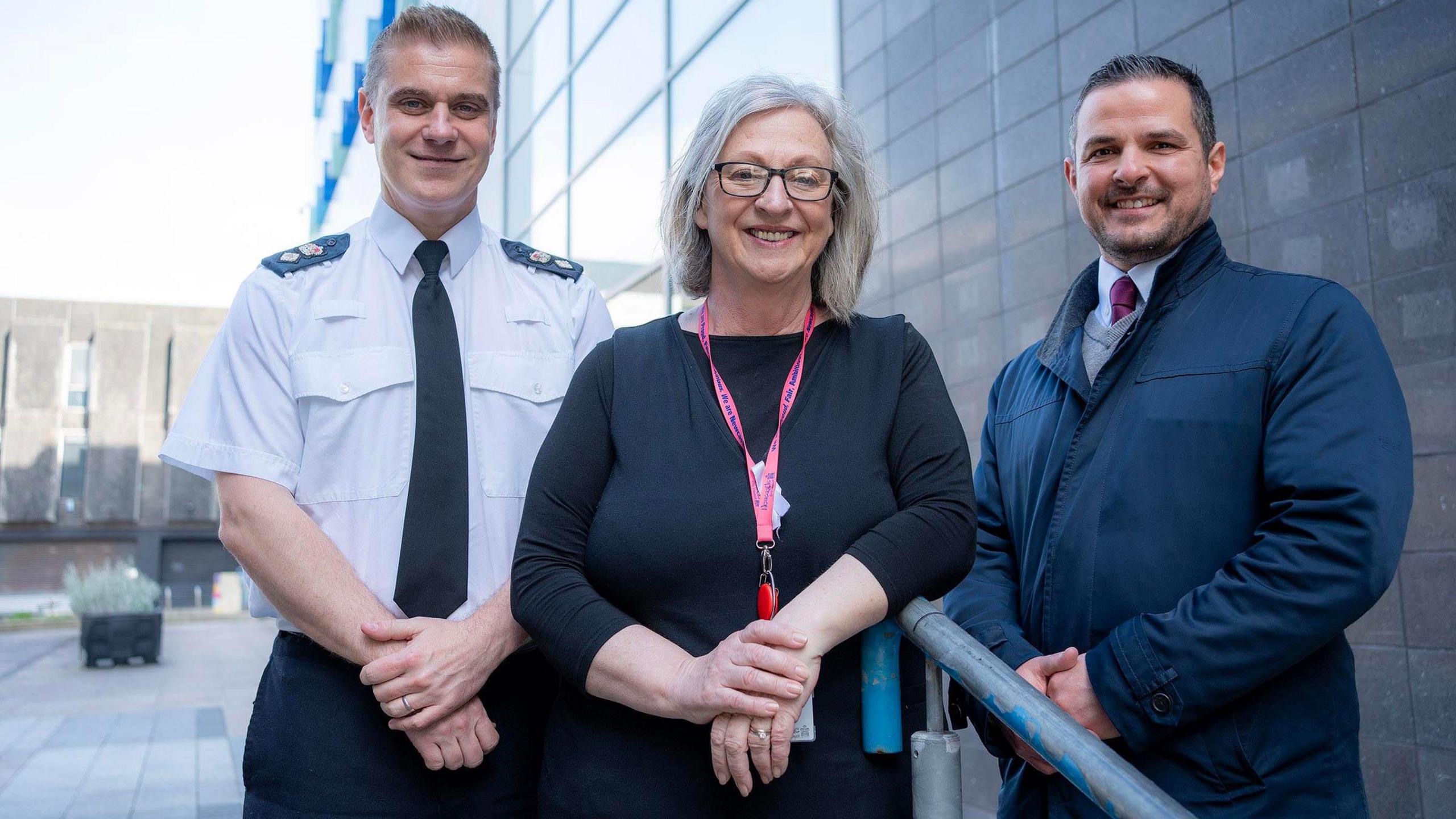
- Published29 May 2024
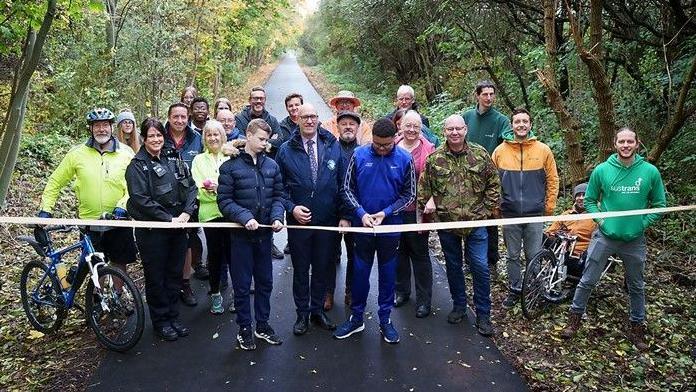
- Published2 April 2024
